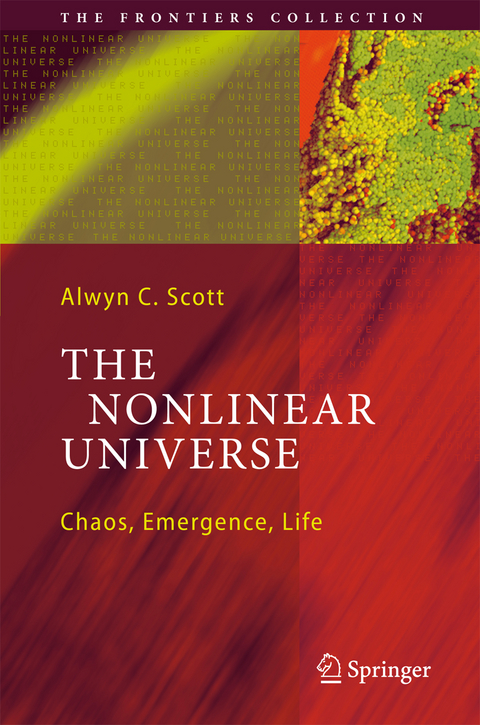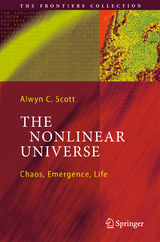The Nonlinear Universe
Springer Berlin (Verlag)
978-3-540-34152-9 (ISBN)
One of the pioneers in the area, Alwyn Scott entered nonlinear science as a teacher and researcher after completing his doctoral work at MIT in the late 1950s. His research, both experimental and theoretical, has addressed a wide range of topics from nonlinear laser optics to neuroscience. In 1981, Scott was selected as the founding director of the Center for Nonlinear Studies at the Los Alamos National Laboratory. He was also a founding editor of Physica D: Nonlinear Phenomena, the first journal devoted exclusively to the area. His other books include Neuroscience: A Mathematical Primer (Springer, New York) and Nonlinear Science: Emergence and Dynamics of Coherent Structures (Oxford University Press) and he served as editor of the recently published Encyclopedia of Nonlinear Science (Routledge). He completed 'The Nonlinear Universe' shortly before his untimely death in January 2007.
Chaos.- Solitons.- Nerve Pulses and Reaction-Diffusion Systems.- The Unity of Nonlinear Science.- Physical Applications of Nonlinear Theory.- Nonlinear Biology.- Reductionism and Life.- Epilogue.
From the reviews:
"The book begins with an engaging outline of the history of nonlinear science, followed by chapters on its main aspects, namely, chaos, solitons, and reaction-diffusion systems. ... The book charms with historical and personal vignettes. The bibliography contains 1,087, mostly referenced, entries. ... it is a must read for anyone in or near nonlinear science. Summing Up: Highly recommended. Upper-division undergraduates through researchers/faculty." (J. Mayer, CHOICE, Vol. 45 (9), 2008)
"Alwyn Scott (1931-2007) completed this summary of his life's study in December 2006 ... . This history book wonderfully summarizes ideas that were so important to him in a way that is largely accessible to 'general readers who would understand science and for university undergraduates who would become researchers in or teachers of science.' It also displays his humanity, charm, and broad-reaching interests and knowledge." (Robert E. O'Malley, SIAM Review, Vol. 50 (2), 2008)
| Erscheint lt. Verlag | 26.9.2007 |
|---|---|
| Reihe/Serie | The Frontiers Collection |
| Zusatzinfo | XIV, 364 p. 86 illus. |
| Verlagsort | Berlin |
| Sprache | englisch |
| Maße | 155 x 235 mm |
| Gewicht | 790 g |
| Themenwelt | Mathematik / Informatik ► Informatik ► Theorie / Studium |
| Naturwissenschaften ► Physik / Astronomie ► Astronomie / Astrophysik | |
| Naturwissenschaften ► Physik / Astronomie ► Theoretische Physik | |
| Naturwissenschaften ► Physik / Astronomie ► Thermodynamik | |
| Schlagworte | Biology • Butterfly effect • Chaos • Diffusion • Emergence • Solitons • Turbulence • Universum |
| ISBN-10 | 3-540-34152-8 / 3540341528 |
| ISBN-13 | 978-3-540-34152-9 / 9783540341529 |
| Zustand | Neuware |
| Informationen gemäß Produktsicherheitsverordnung (GPSR) | |
| Haben Sie eine Frage zum Produkt? |
aus dem Bereich




